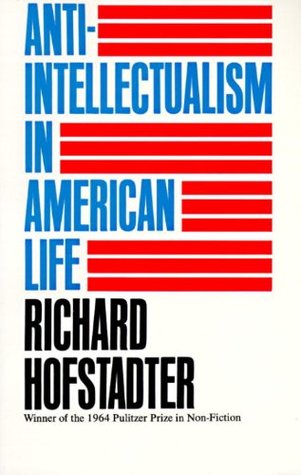As European antagonisms withered and lost their meaning on American soil in the eighteenth and nineteenth centuries, the new nation came to be conceived not as sharing the ideologies which had grown out of these antagonisms but as offering an alternative to them, as demonstrating that a gift for compromise and plain dealing, a preference for hard work and common sense, were better and more practical than commitments to broad and divisive abstractions.
It is as if America needs an external antagonist, or at least a large part of the nation's inhabitants do. That would be the economically obsessed class of Americans who loath thinking and esteem acting on impulse. They revere their hunches, though could hardly articulate any motive force other than profit or victory.


